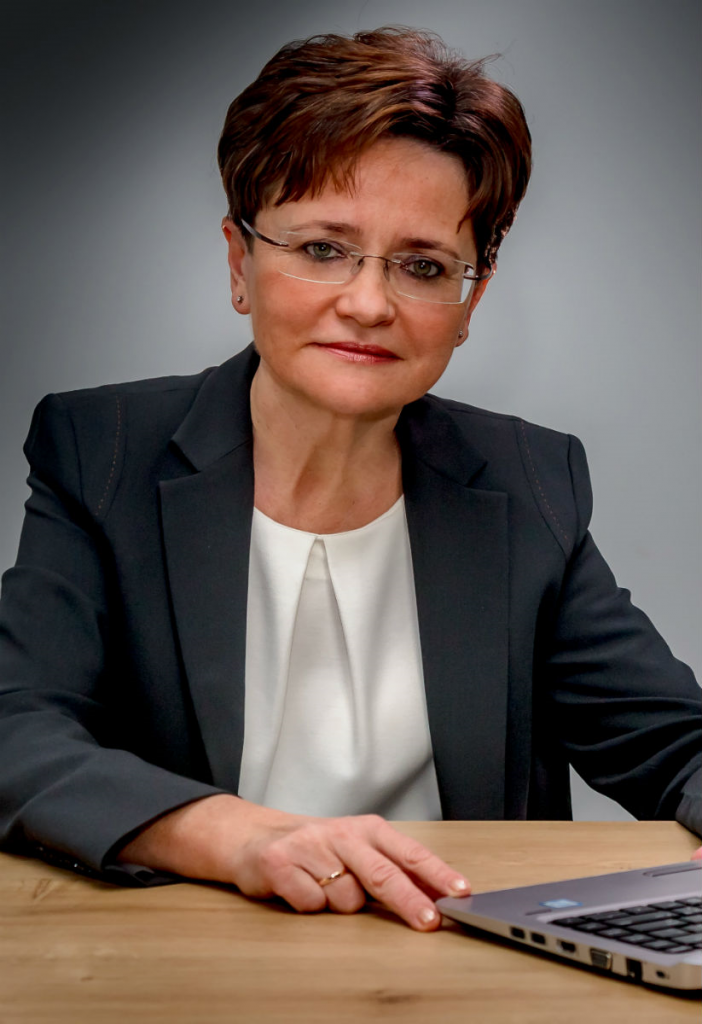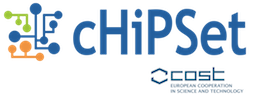
This special session is organized as a part of the Action WG meeting
28 March 2019, Vilnius, LIthuania
Workshop Topics
Modelling and simulation in science have become increasingly complex and more demanding for computational and data resources. While some models have hundreds of constraints, some simulations continually generate terabytes and even petabytes of data. As both become more data intensive, storing, computing, analysing, and visualising their associated large data sets have become a major challenge. Consequently, data-intensive modelling and simulation are widely considered key in scientific discovery.
The aim of this workshop is to provide a dynamic
forum for cHiPSet Action members and distinguished guests to openly discuss
novel perspectives and topics of interests for the Modelling & Simulation
and HPC communities including:
– novel modelling languages and techniques
– matrix, tensor, probabilistic and statistical methods for big data simulation
– spatially explicit simulation
– algorithms and methods for data-driven parallel or distributed simulation
– simulation-based decision-making and analytics.
– dynamic data-driven complex systems
– case studies on healthcare, biological data, recommender systems,
computational advertising, multimedia, finance, bioinformatics,
telecommunications
AGENDA
| Title | Presenter | |
| 16:30 | Welcome from the Action Chairs | Action Chair: Joanna Kołodziej |
| 16:35 – 16:55 | Data Science and Advanced Digital Technologies | Gintautas Dzemyda |
| 16:55 – 17:15 | Multidimensional Data Visualization Using Optimization and High-Performance Computing | Julius Žilinskas |
| 17:15 – 17:35 | Energy and Power Efficiency in Data Centers and Computer Networks | Ewa Niewiadomska-Szynkiewicz |
| 17:35 – 18:15 | Panel Discussion | Moderator: Horacio Gonzalez-Velez |
Invited Speakers
Gintautas Dzemyda

Title: Data Science and Advanced Digital Technologies
Abstract: The data science can produce valuable results only in combination with a number of advanced digital technologies. In addition, these technologies should be integrated into a variety of computing systems taking into account architecture and other peculiarities of those systems. Consequently, there is also a broad field for research for computer scientists, software engineering, and other informatics-related scientists. The most topical challenges in data science are highlighted. The activities of Vilnius University Institute of Data Science and Digital Technologies are introduced. The institute pretends to solve at least a part of problems arising in this field, first of all, cognitive computing, blockchain technology, development of cyber-social systems and big data analytics
Gintautas Dzemyda was born in Vilnius, Lithuania. In 1984 he received the doctoral degree in technical sciences (Ph.D.), and in 1997 he received the degree of Doctor Habilius from the Kaunas University of Technology. He was conferred the title of Professor (1998) at the Kaunas University of Technology. Full member of the Lithuanian Academy of Sciences (2011). Recent employment is at the Vilnius University Institute of Data Science and Digital Technologies as a Director, Head of the Cognitive Computing Group, Professor and Principal Researcher. The field of research interests focuses on development and application of data science methods and technologies, and the interaction of optimization and data analysis. The interests include dimensionality reduction and visualization of multidimensional data, intelligent techniques in medicine, optimization theory and applications, data mining in databases, artificial intelligence, recommendation systems, multiple criteria decision support, parallel optimization, neural networks, and image analysis. The author of more than 250 scientific publications, two monographs, five textbooks. Editor in Chief of the international journals Informatica (http://www.mii.lt/informatica) and the Baltic Journal of Modern Computing (http://www.lu.lv/baltic-journal-of-modern-computing/), a member of Editorial Board of eight international journals. Member of Lithuanian Computer Society, Lithuanian Mathematical Society, Lithuanian Operational Research Society, IFIP Technical Committee 12 Artificial Intelligence.
Julius Žilinskas

Title: Multidimensional Data Visualization Using Optimization and High-Performance Computing
Abstract: A picture is worth a thousand words. The goal of multidimensional data visualization is to present such data visually for exploratory analysis. One of the techniques to reduce the dimensionality of data for visualization is multidimensional scaling which searches for the points in a low dimensional space whose inter-point distances fit the given dissimilarities of multidimensional objects. This is achieved by optimization of a criterion of fit. Unfortunately, this optimization problem is difficult since it includes a multimodal objective function with unfavorable properties like invariants and non-differentiability. In this talk, we will discuss algorithms to solve such optimization problems and reveal usefulness of parallel computing which enables solution of larger problems.
Julius Žilinskas is a principal researcher at Vilnius University Institute of Data Science and Digital Technologies. His main research interests are optimization, parallel computing, data analysis and visualization. He published monographs “Multidimensional Data Visualization”, “Simplicial Global Optimization”, “Non-Convex Multi-Objective Optimization”, and edited several books in these areas.
Ewa Niewiadomska-Szynkiewicz

Title: Energy and Power Efficiency in Data Centers and Computer Networks
Abstract: Progress in high energy physics, chemistry and biology depends on energy-efficient data mining and computing technologies. Indeed, data centers, supporting both cloud services and high performance computing (HPC) applications, consume enormous amounts of electrical energy. Energy usage in data centers grows rapidly with the climbing demand for cloud and HPC services. However, as the analysis of current trends clearly indicates, the growth rate of ICT cannot be sustained unless the power consumption problem is addressed.
To meet the ever increasing demand for computing power, recent research efforts have been taking holistic view to energy-aware design of hardware, middleware and data processing applications. Indeed, advances in hardware layer development require immediate improvements in the design of system control software. For this to be possible new power management capabilities of hardware layer need to be exposed in the form of flexible Application Program Interfaces (APIs). Consequently, novel APIs and cluster management tools allow for system-wide regulation of energy consumption, capable of collecting and processing detailed cluster and network performance measurements, and taking real-time coordinated actions across the HPC infrastructure. An overview of techniques developed to improve energy efficiency of HPC computing will be overviewed. Power consumption models and energy usage profiles will be presented together with energy efficiency measuring methods. Modeling of computing dynamics will be discussed from the viewpoint of system identification theory, indicating basic experiment design problems and challenges. Energy-aware server-level control mechanisms will be presented, including ACPI-compliant low power idle and service rate scaling solutions. Finally, novel approaches to cluster-and network-wide energy usage optimization will be surveyed, including multi-level power and software control systems, energy-aware task scheduling and resource allocation algorithms. The results of the research supported by National Science Centre grant 2015/17/B/ST6/01885 will be presented.
Ewa Niewiadomska-SzynkiewiczDSc (2005), PhD (1995), professor of control and computer engineering at the Warsaw University of Technology, head of the Complex Systems Group. She is also the Director for Research of Research and Academic Computer Network (NASK). An expert of the Polish Accreditation Committee working for the quality of education in Poland and a member of Committee on Automatic Control and Robotics of the Polish Academy of Science. The author and co-author of three books and over 160 journal and conference papers. Her research interests focus on complex systems modelling, control, and optimization, computer simulation, high performance computing and computer networks. She was involved in a number of research projects including EU projects, coordinated the groups activities, managed organization of a number of national-level and international conferences. Her email is ens@ia.pw.edu.pl.
Contact Information
Joanna Kolodziej – Action Chair (joanna.kolodziej68@gmail.com)
Horacio Gonzalez-Velez – Action Vice-Chair (horacio.gonzalez-velez@ncirl.ie)
